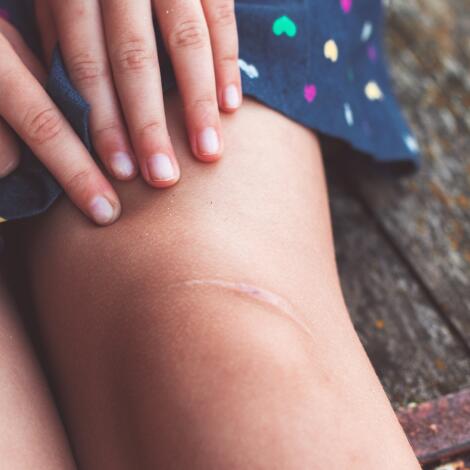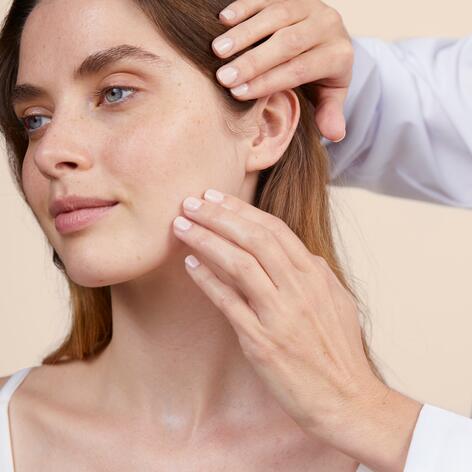Protecting your scars
On already damaged skin, exposure to the sun triggers an inflammatory reaction, and scars can leave permanent marks on the skin. How to protect your scar from the sun? Why shouldn't you expose your scar to the sun? Our answers to your questions about caring for your skin and scars.

Why do scars leave a bigger mark in the sun?
Your skin tells the story of your life, which can include little injuries as well as big accidents. Scars are rarely pleasant, but they are a fact of life. These lesions, which can be more or less deep, can take time to heal. The epidermis, which is thinner and more fragile at the site of the scar, is very sensitive to UV rays during the entire skin repair process. When exposed to sun rays, damaged skin works hard to protect itself by producing more melanin. This can lead to the appearance of small brown spots (dermatologists call this post-scarring hyperpigmentation).
Different types of scars
The colour of a scar is a good indicator of how long it will last and where it is in its healing process.
Pink or red scar
A pink or red scar is a "fresh" scar less than 6 months old. Not yet fully repaired, the skin will brown easily in the sun. The solution, if possible, is not to expose your scar at all by protecting it with a garment or dressing, and with a high sun protection (SPF50+).
White scar
A white scar is a mature scar which has completed its repair process. While there is no longer a risk of pigmentation, your scar may still react to the sun. It is therefore best to continue applying a high SPF sunscreen to your scar, even at this stage.
Good habits for protecting your scars from the sun
- Applying a high SPF protection on your scar all year round.
- As for the rest of the body, avoid peak hours of sun exposure from 10am to 4pm.
- In summer as well as in winter, use a high SPF when the sun.

FRIENDLY, EXPERT ADVICE
What if it's too late?
The damage is done and your scar has turned brown or is circled with brown... Now you just have to let time do its work. Some pigment marks may fade over time, although this usually takes years rather than months. If you can't stand the sight of your scar on a daily basis, you might want to consider more extensive medical solutions, such as depigmenting products, laser or surgery.
OUR SOLUTIONS TO PROTECT OUR FUTURE
Eau Thermale Avène skin care products designed to protect the skin and respect the oceans
NEWSLETTER
We're always here for your skin!
All our advice on how to take care of your skin day to day.

Which skin care routine should you adopt?
Identify what it really needs with the help of our experts and discover the most suitable skin care routine for you.
